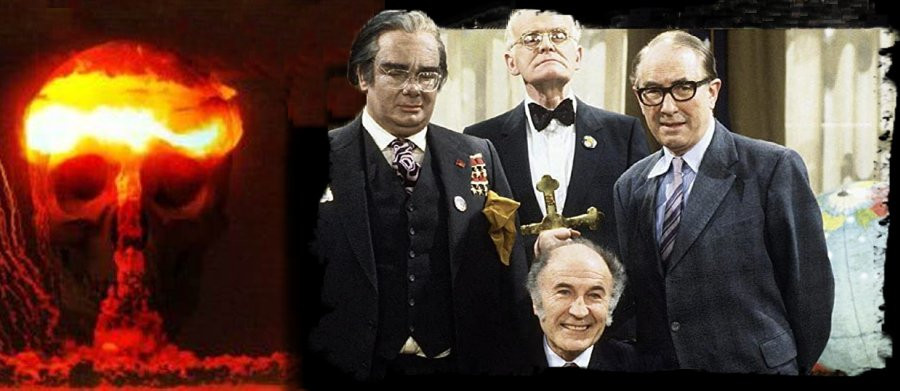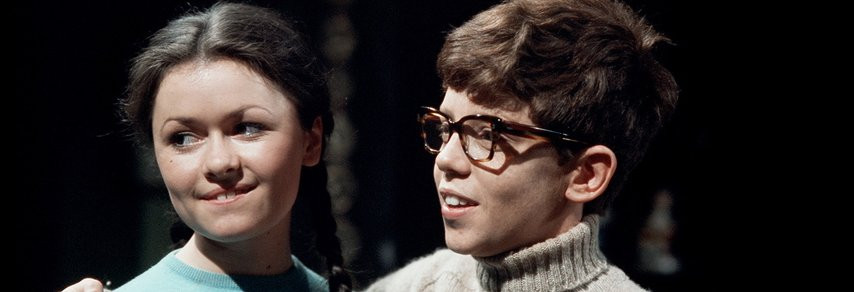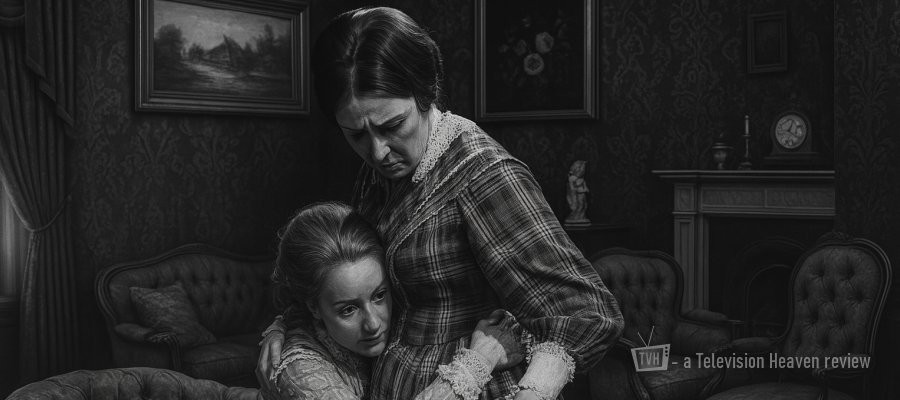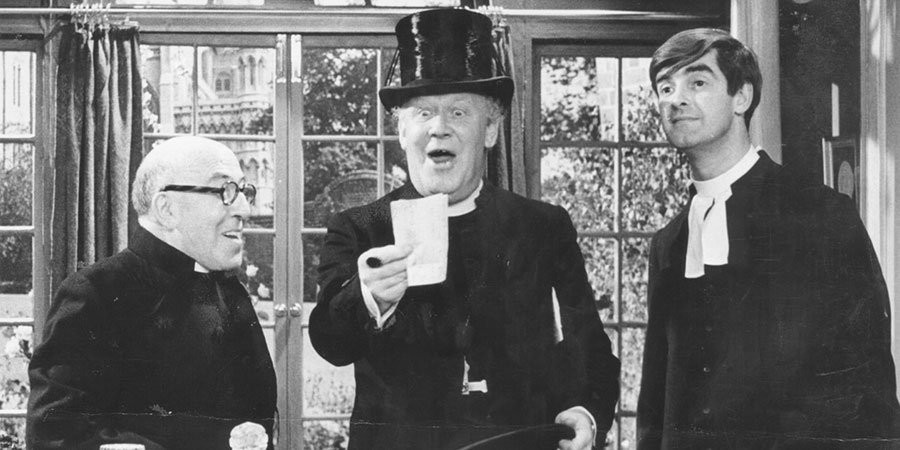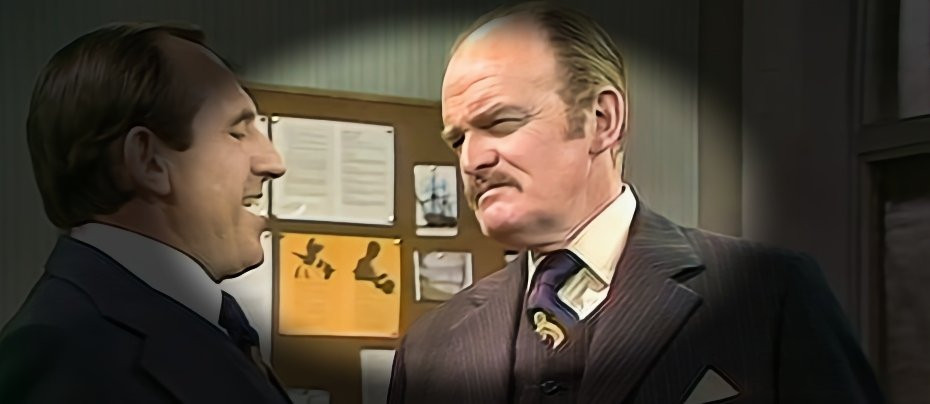
John Barron
John Barron, born on Christmas Eve 1920 in Marylebone, London, was a British actor whose career spanned over five decades. With his distinctive voice, commanding presence, and remarkable versatility, Barron became a beloved figure in British television and theatre. Before becoming the iconic C.J. in the television sitcom The Fall and Rise of Reginald Perrin, Barron's journey through the entertainment industry was filled with dedication, hard work, and an array of memorable performances.
His C.J. character was practically a walking talking collection of mixed metaphors and clichés often spouting utterly meaningless lines, and yet, people hung on his every word. His professional wisdom, if you can call it that, was encapsulated in a frequent refrain: "I didn’t get where I am today by..."—and then filling in the blank with some absurdity. Barron once remarked "C.J. was the perfect gift for an actor because he was so appalling."
John Barron was educated at King's College School in Wimbledon and later attended Portsmouth Grammar, but he later said: "My education was not very good. I was always moving schools." He trained at RADA, thanks to a godfather who volunteered to pay the fees, before working in repertory at Croydon, Leicester and Brighton. He worked as an Assistant Stage Manager at Worthing and went on to direct at Preston, Hull, Wolverhampton and Salisbury - but when the Second World War broke out, he enlisted in the Royal Navy where he served with distinction. After the war he returned to rep making extensive tours of the country before making his West End debut in The Reluctant Debutante at the Cambridge Theatre.
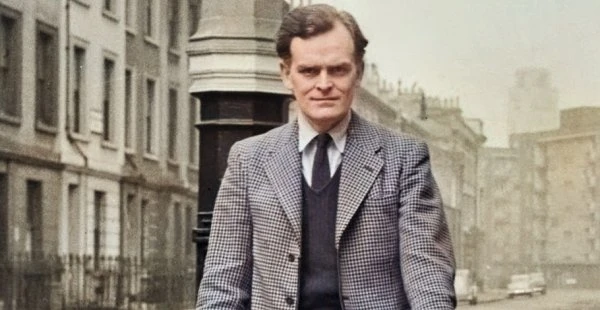
At this point, Barron moved into the early days of post-war television, making his first appearances in several BBC broadcasts when a series of plays, Acacia Avenue (1948), Children to Bless You (1948) and Mountain Air (1949), were televised live from the Intimate Theatre, at Palmers Green, near Alexandra Palace. Barron soon found himself in demand for numerous small screen roles and already had over 30 to his credit when he landed the role of hospital trustee Harold de la Roux in the ITV drama series Emergency-Ward 10, a part that he played in 82 episodes between 1959 and 1964. Barron's excursions into the cinema were less frequent; but he had parts in Sink the Bismarck!, To Catch a King, The Day the Earth Caught Fire, Thirteen at Dinner, Jigsaw and The Great Question.
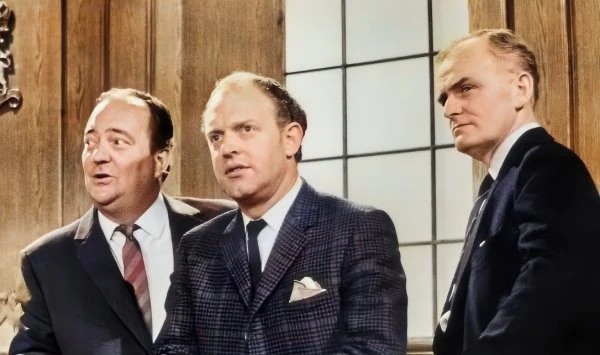
After leaving the hospital service on ITV, he joined the police service on BBC when he was given the role of Deputy Chief Constable Austin Gilbert in 52 episodes of Softly, Softly. In 1966 he made one of his first forays into situation comedy playing the Very Reverend Lionel Pugh-Critchley in the ecclesiastical comedy All Gas and Gaiters before appearing in teenage teatime sci-fi series Timeslip. Between 1973 and 1982, Barron appeared as a judge (the Hon Mr Justice Mitchenor) in 125 episodes of Crown Court but it was his casting as CJ in The Fall and Rise of Reginald Perrin which provided him with an even wider recognition, enabling him to demonstrate his abilities as a memorable comic actor.
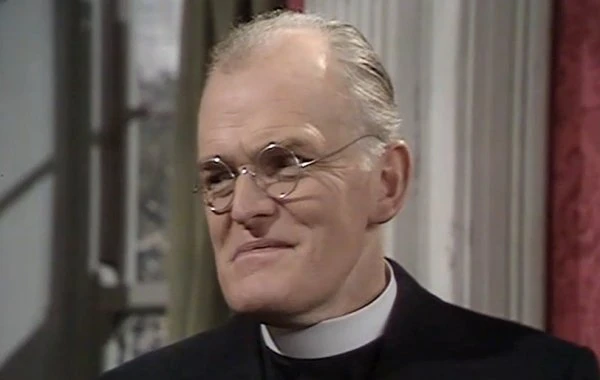
As well as acting, Barron was elected first as Vice-President of Equity in 1977, was then President from 1978 until 1982, and then re-elected to serve as Vice-President between 1984 and 1992. He was made an Honorary Life Member in 1997.
Despite his great success on television Barron was, according to his friends, never happier than when on stage. In the London theatre he appeared in The Masters, Diplomatic Baggage, Beyond Reasonable Doubt and Lend Me a Tenor. He toured prolifically both in the UK and the Far East for Derek Nimmo in See How They Run.
In later years, his personal life was tinged with sadness. His first wife, the actress Joan Peart, died in 1989 and his second wife Helen Christie, also an actress, died in 1995. Afterwards, Barron was diagnosed with Parkinson’s Disease, an affliction he fought with great determination and courage. He spent his last years at Denville Hall, the retirement home for professional actors, actresses and members of other theatrical professions, before passing away on 3 July 2004.
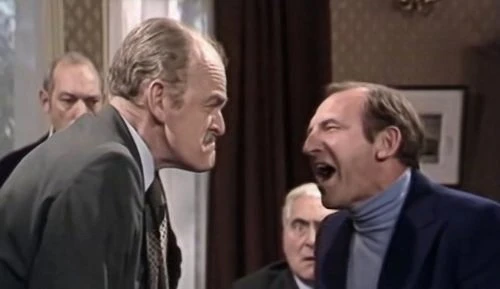
John Barron’s versatility as an actor was evident from the breadth of his work. He was not just limited to comedy, although that is where he found his most iconic role. His early stage work demonstrated his ability to handle both dramatic and comedic roles with equal aplomb. His work continues to inspire and entertain, ensuring that his legacy as one of Britain's finest character actors endures. For anyone who has laughed at the absurdities of C.J. or been moved by Barron's other roles, his contribution to the world of entertainment remains unforgettable.
Published on July 31st, 2024. Written by Marc Saul for Television Heaven.




